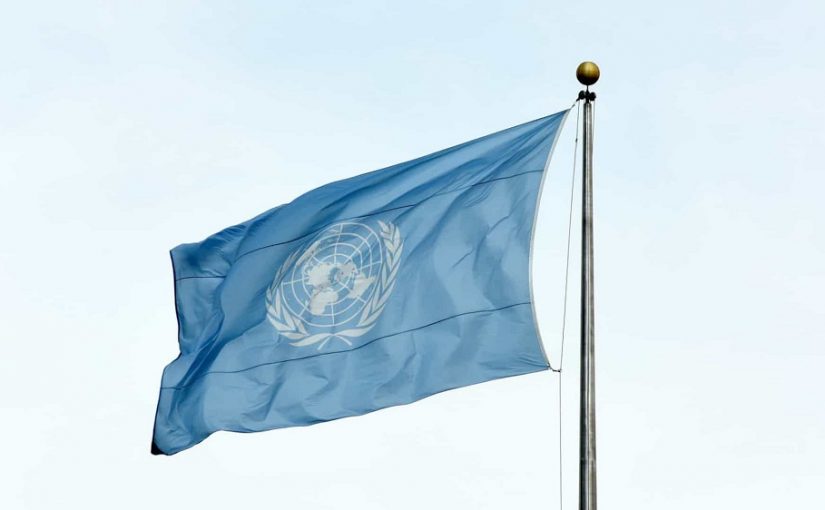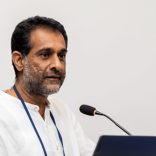Mozambique: Ilesh Jani is the new chair of the Global Task Force on Cholera Control Steering ...
Africa: ‘Inadequate exit strategies and support” lead former terrorists to consider re-joining extremist groups

File photo: Lusa
The United Nations (UN) indicated on Monday that African governments’ inadequate exit strategies and support for former terrorists lead them to consider re-joining extremist groups such as the Islamic State.
In a report, the United Nations Counter-Terrorism Committee Executive Directorate (CTED) issues several warnings about the terrorism situation in Africa, among them “inadequate exit strategies and support provided to former terrorists after they leave reintegration programmes, leading them to consider re-joining terrorist groups”.
Among the shortcomings are:
- Lack of compensation and support for victims and local populations (particularly women) disproportionately affected by terrorism and counter-terrorism;
- Insufficient criminal justice response mechanisms in most states affected by terrorism;
- Failure of the relevant authorities to take advantage of the positive role that civil society, community, and women can play in preventing terrorism, building resilience, and reintegrating former fighters;
- Insufficient coordination of inti-extremism initiatives between the national and community levels, which undermines efforts to understand and better support communities and families.
Titled “Civil Society Perspectives: ISIL in Africa – Key Trends and Developments”, the report reflects the results of two virtual roundtables convened by CTED in October and November 2021, with the presence of more than 50 representatives of African civil society organisations from 15 UN Member States, and collates their perceptions of gaps and challenges in the ability of African countries to implement relevant Security Council resolutions.
.@UN_CTED‘s #ISILinAfrica report will be the focus of a joint open briefing this Thursday!
📅: 7 April
🕒: 3pm–6pm EDT
📺: UNWebTVSpeakers:@ambtstirumurti@EFittonBrown@GlobalCtr@KenyaMissionUN@issafrica
🇳🇬
🇹🇩Report: https://t.co/B9SF7XU3Mt pic.twitter.com/eaBJ9ifulF
— United Nations CTED (@UN_CTED) April 5, 2022
Among the cases discussed is that of Mozambique, in which the CTDE reveals that “participants cited a study conducted among displaced persons in Cabo Delgado and Nampula (which borders Cabo Delgado), which found that ethnicity, heritage, and cultural identity were key in driving recruitment to the ISIL-affiliated group”.
“Ethnic groups that were already represented in the terrorist group were more successful in recruiting from the same ethnic pool. In Cabo Delgado, historical ethnic grievances between different groups had also helped increase vulnerability to terrorist recruitment,” the document reads.
In view of the perceptions observed, the report compiles a series of recommendations aimed at governments and authorities in various African countries, such as “consistently protecting and respecting human rights in counter-terrorism and CVE initiatives, including by thoroughly investigating and ensuring justice for past abuses”, and “creating and implementing gender and age-appropriate CVE processes and psychological support programmes for victims and persons associated with terrorism”.
The Committee further recommended that governments “provide meaningful and equitable skills to men and women to enable them to successfully reintegrate into communities and share the strategies employed with interested partners”, and “engage in dialogue with fighters and terrorist groups, including through respected local community and religious leaders, in areas where confidence in Government is lacking”.
As for international aid and capacity building partners, the CTED recommends that they “provide comprehensive human rights support to Governments (including clear evidence on the practical implications of human rights violations on communities) to facilitate a culture change within security forces”.
#ISIL forms affiliations with existing local African groups, exploiting structural issues like corruption, unemployment, and poor governance to recruit fighters and drive a wedge between authorities and communities.
Learn more here: https://t.co/BZVVIlOURx. #ISILinAfrica pic.twitter.com/3sT8cf9tok
— United Nations CTED (@UN_CTED) April 4, 2022
Cabo Delgado province, in Mozambique, has been terrorized by armed rebels since 2017, with some attacks claimed by the Islamic State extremist group.
There are 784,000 people internally displaced by the conflict, according to the International Organisation for Migration, and about 4,000 have died, according to the ACLED conflict registration project.
- You may read / download the full CTED report “Civil Society Perspectives: ISIL in Africa – Key Trends and Developments” HERE
‘Civil society perspectives: ISIL in Africa – Key trends and developments’ — new @UN_CTED report out today. https://t.co/M3V1uJL7Ks
— Program On Extremism (@gwupoe) April 4, 2022













Leave a Reply
Be the First to Comment!
You must be logged in to post a comment.
You must be logged in to post a comment.